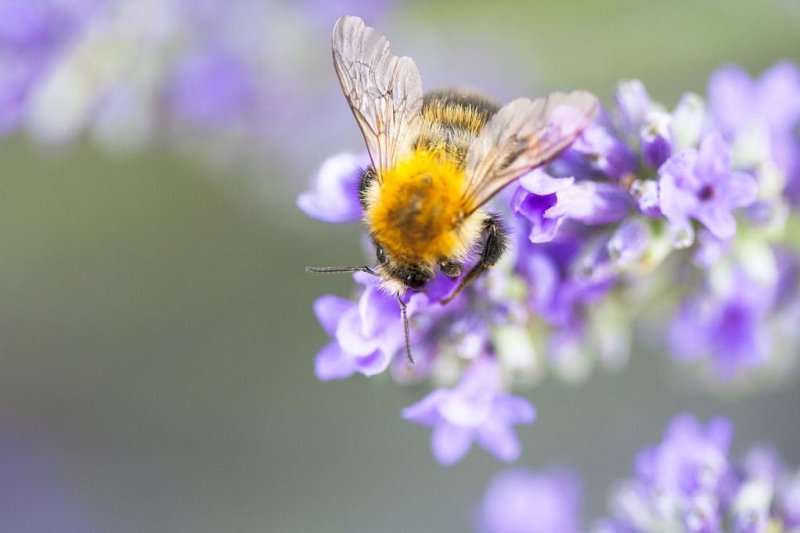Urban settings provide more robust pollination services, new research suggests. Photo by
Max Pixel/CC
Jan. 29 (UPI) -- Urban flowering plants are better pollinated than rural flowers, according to a new study.
To better understand the effects of urbanization on pollination patterns, scientists in Germany trapped and analyzed flying insects at dozens of urban and rural test sites. All of the sites, whether farms in the countryside or parks within one of several German cities, featured similar abundances of flowers.
Scientists measured the types and abundance of pollen found in the trapped insects. Researchers also regularly monitored the frequency at which pollinators visited red clover flowers at each test side.
The combination of observations, detailed Wednesday in the journal Nature Communications, revealed greater levels of pollination across all urban environs. The research revealed bumble bees as the most industrious of the urban pollinators, with honey bees coming in a close second.
Researchers estimate bees benefit from the diversity of habitats found in many cities, with city parks and gardens offering a wide variety of flowering plants. Exposed soils, dead wood and wall cavities also provide nesting opportunities for bees.
Previous studies have shown rural settings with a diversity of vegetation host the greatest diversity of insects, but the latest findings suggest bees are better able to cope with city life, and thus are able to take advantage of the unique resources found in urban settings.
"Urban people are constantly changing their environment. Finding your way around is a challenge that bees are particularly well-equipped to deal with due to their highly developed orientation and learning skills," lead study author Robert Paxton, professor at Martin Luther University Halle-Wittenberg, said in a news release. "Flies and butterflies obviously find this more difficult."
Of course, cities without parks and gardens would likely prove uninhabitable to bees, but most German cities offer significant amounts of green space. Modern agricultural acreage is often more devoid of flowers than urban settings.
The abundance of pesticides in rural settings could also help explain the lack of pollination found among rural settings.
"I was really shocked at how consistently poor the pollination performance in agricultural land was," said Paxton. "Other studies have shown that wild bees and bumblebees are particularly susceptible to pesticides. This could also explain why their diversity is greater in the city, where pesticides play a lesser role."
According to the authors of the new study, policy makers can help maintain healthy pollinator populations by not only improving land management in agricultural settings, but also by ensuring urban setting remain sufficiently green.















